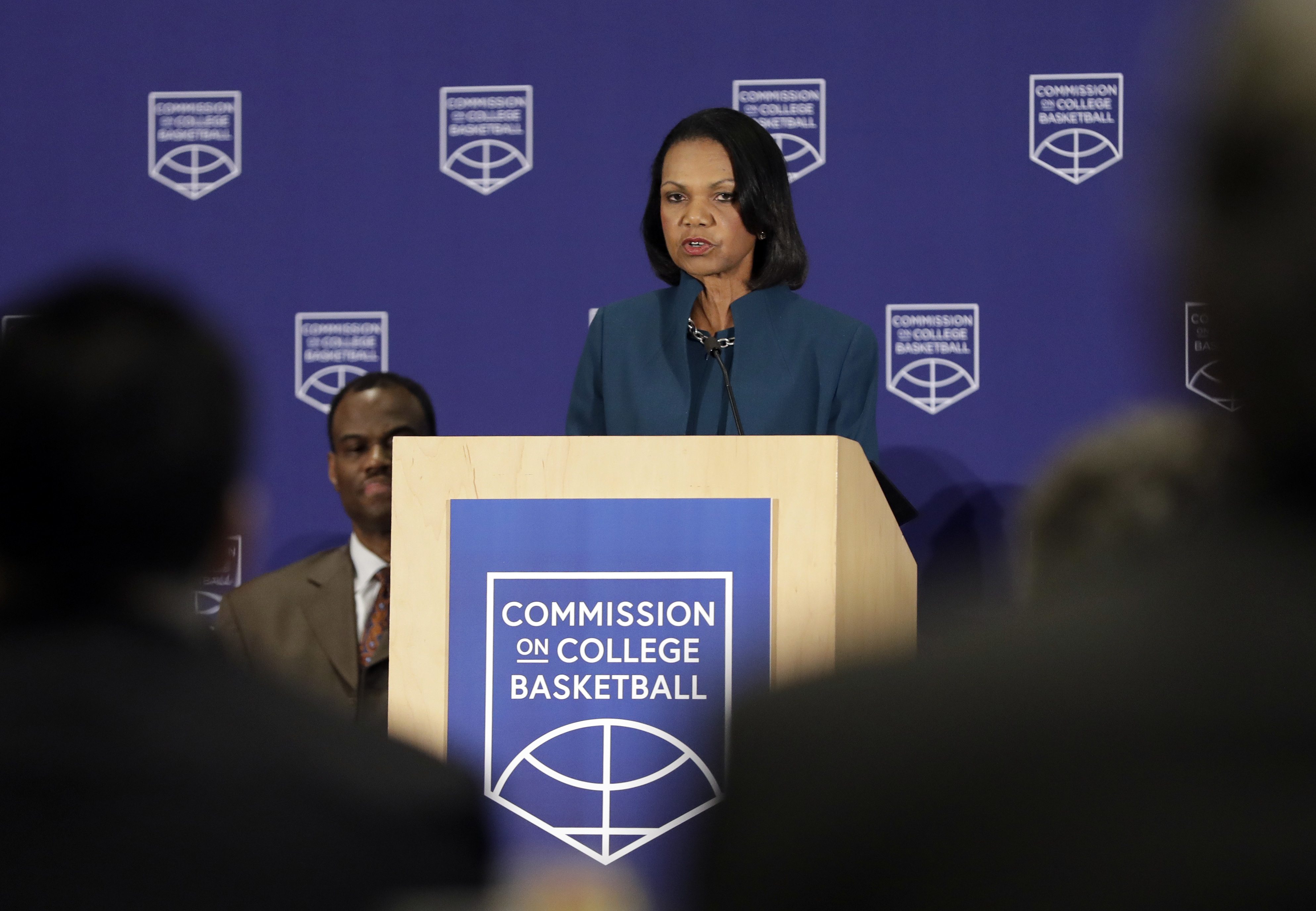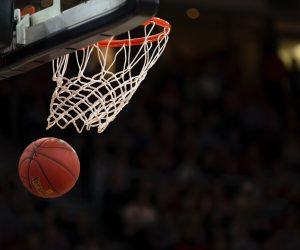The Commission on College Basketball released a report calling for a series of changes to the structure of NBAA basketball, including the end of a rule that prevents players from immediately playing in the NBA after graduating from high school.

The commission, which was chaired by former Secretary of State Condoleezza Rice, announced their findings at a press conference in Indianapolis on Wednesday. The commission released a 60-page report detailing the problems they found with the current NCAA basketball system, and the steps they would recommend to improve the situation.
Ending One-and-Done
The largest recommended change would be the end of the one-and-done rule. Instituted in 2006, the rule requires players to wait a year after they graduate from high school in order to be eligible for the NBA draft. That has led to many of the most promising high school prospects playing just a single year of college basketball before jumping to the pros.
Ending that rule wouldn’t be in the hands of the NCAA, however. As Rice pointed out, the rule was instituted by the NBA itself, and that league would have to change its policies to reverse the situation.
If that doesn’t happen, the commission came up with alternatives that could help reduce the frequency of one-and-done situations, such as making freshmen ineligible to play or requiring scholarships to be locked for a period of time if a student-athlete leaves after a single year.
“One-and-done has to go, one way or another,” Rice told the AP.
Harsher Penalties for Programs that Cheat
Much of the report is focused on ways in which the NCAA can prevent cheating. The commission was formed in response to last year’s FBI investigation into fraud in college basketball, particularly in the recruitment process. That investigation led to 10 arrests, including assistant coaches at four major college programs and officials at Adidas.
The commission made several recommendations as to how the NCAA could crack down on corruption. They include calling for harsher punishments for Level I violations, including a five-year postseason ban and stiffer financial penalties.
“Currently, the rewards for violating the rules far outweigh the risks,” Rice said.
Also included in the report were recommendations related to how players are treated if they declare for the NBA draft. Currently, players can return to college basketball if they declare for the draft, but only if they never sign with an agent and do so weeks before the draft occurs. The commission’s recommendation would allow players to return as long as they did not sign a professional contract.
“Erroneously entering the NBA draft is not the kind of misjudgment that should deprive student-athletes of the valuable opportunity to enter college or to continue in college while playing basketball,” Rice said.
One idea that didn’t get an endorsement was allowing athletes to be compensated while in college. The commission made no recommendations as to direct payments to athletes, or for them to be able to profit off of their own likenesses.
“Our focus has been to strengthen the collegiate model,” Rice said, “not to move toward one that brings aspects of professionalism into the game.”
The commission’s findings are not binding. However, the NCAA Board of Governors and Division I Board of Directors said that it had unanimously endorsed the report and its recommendations.











